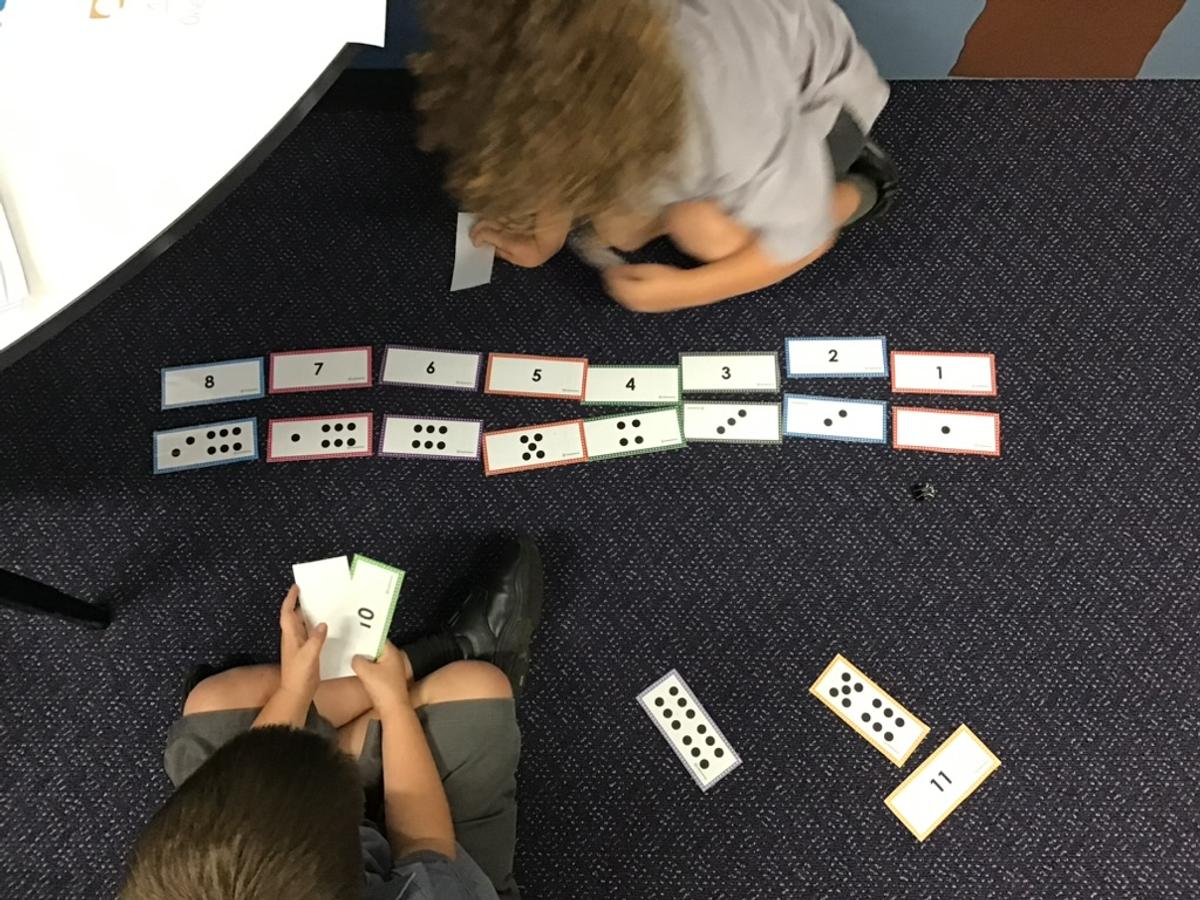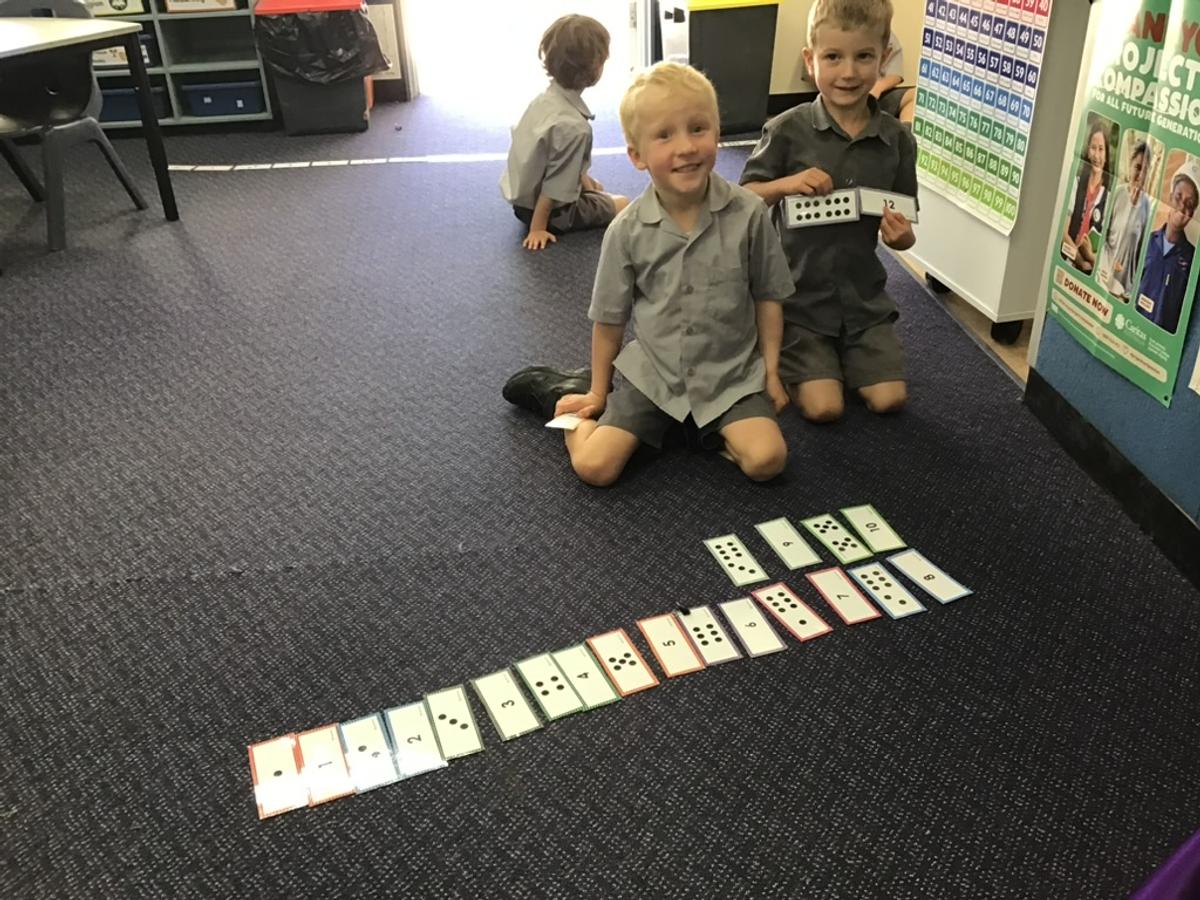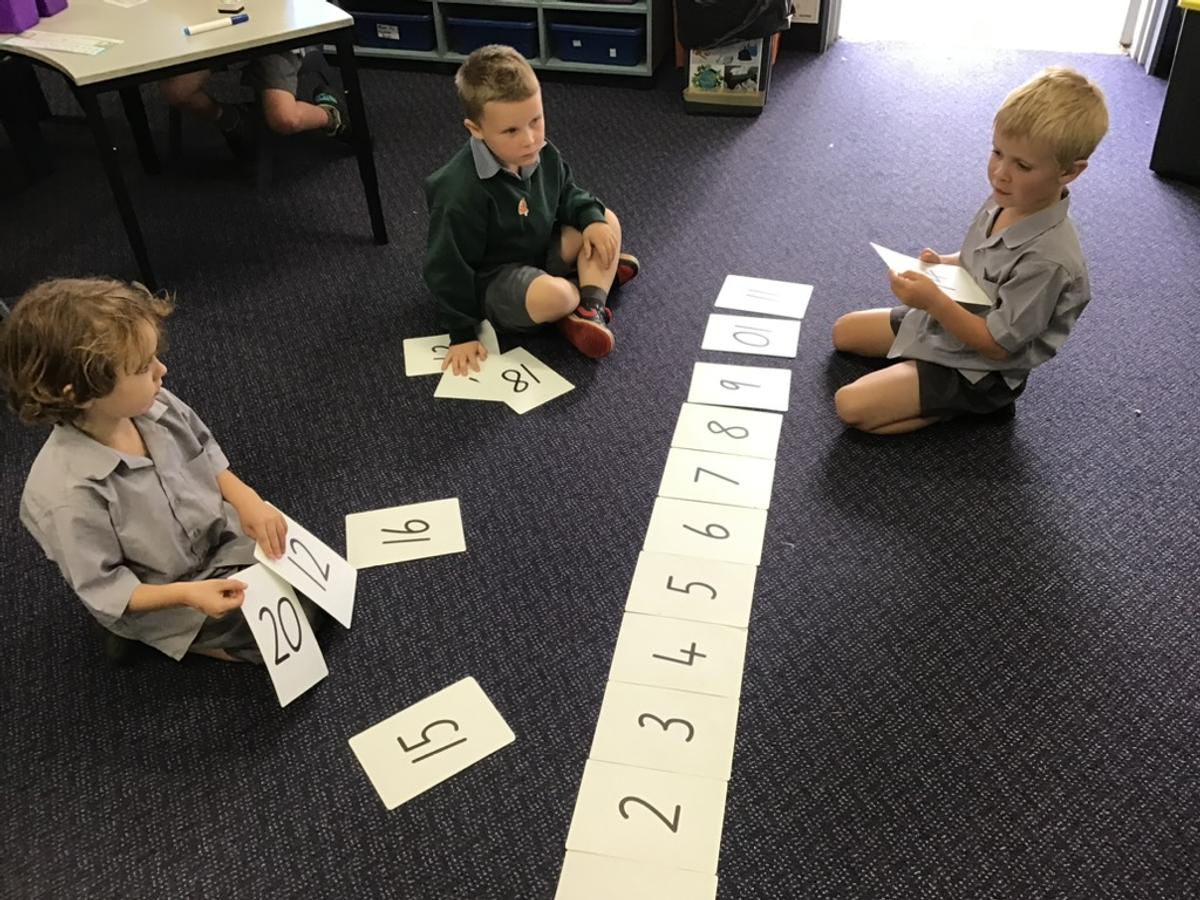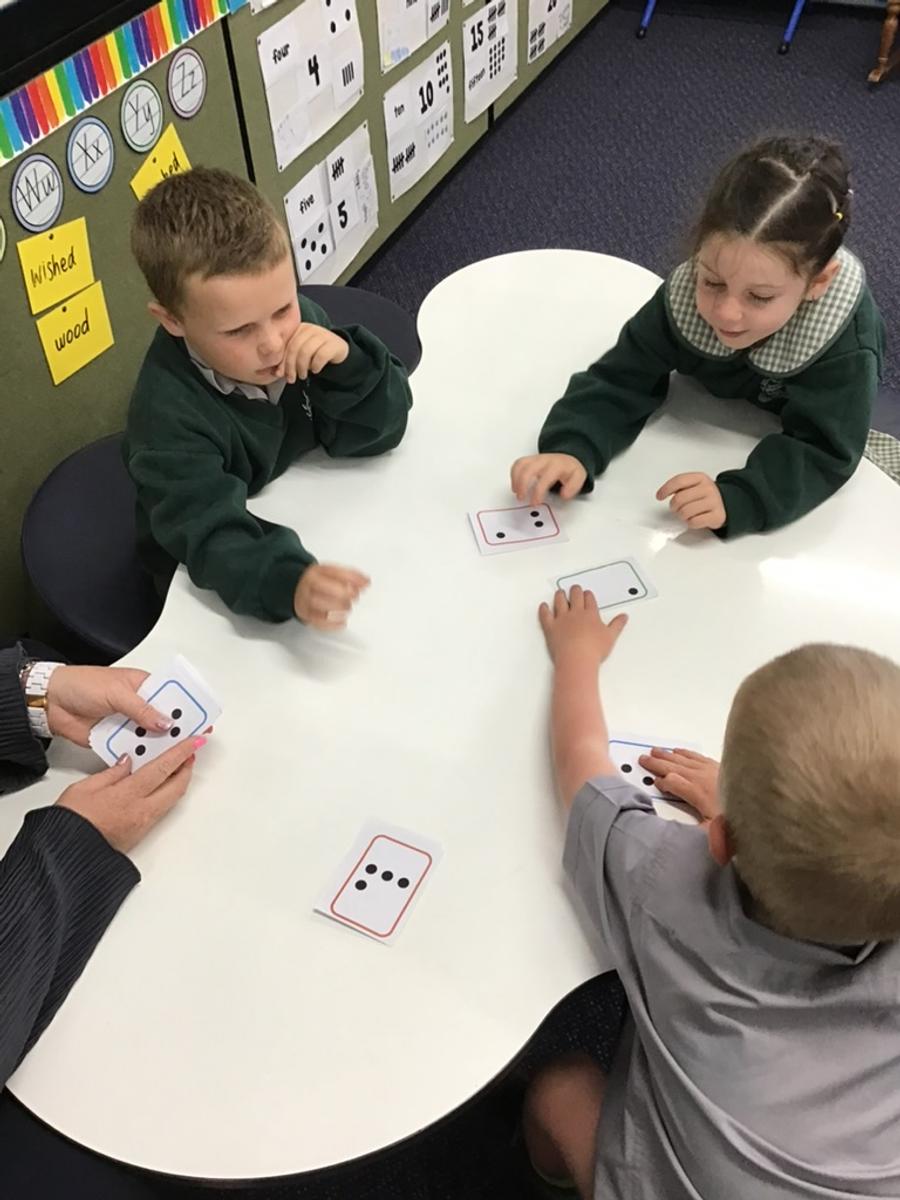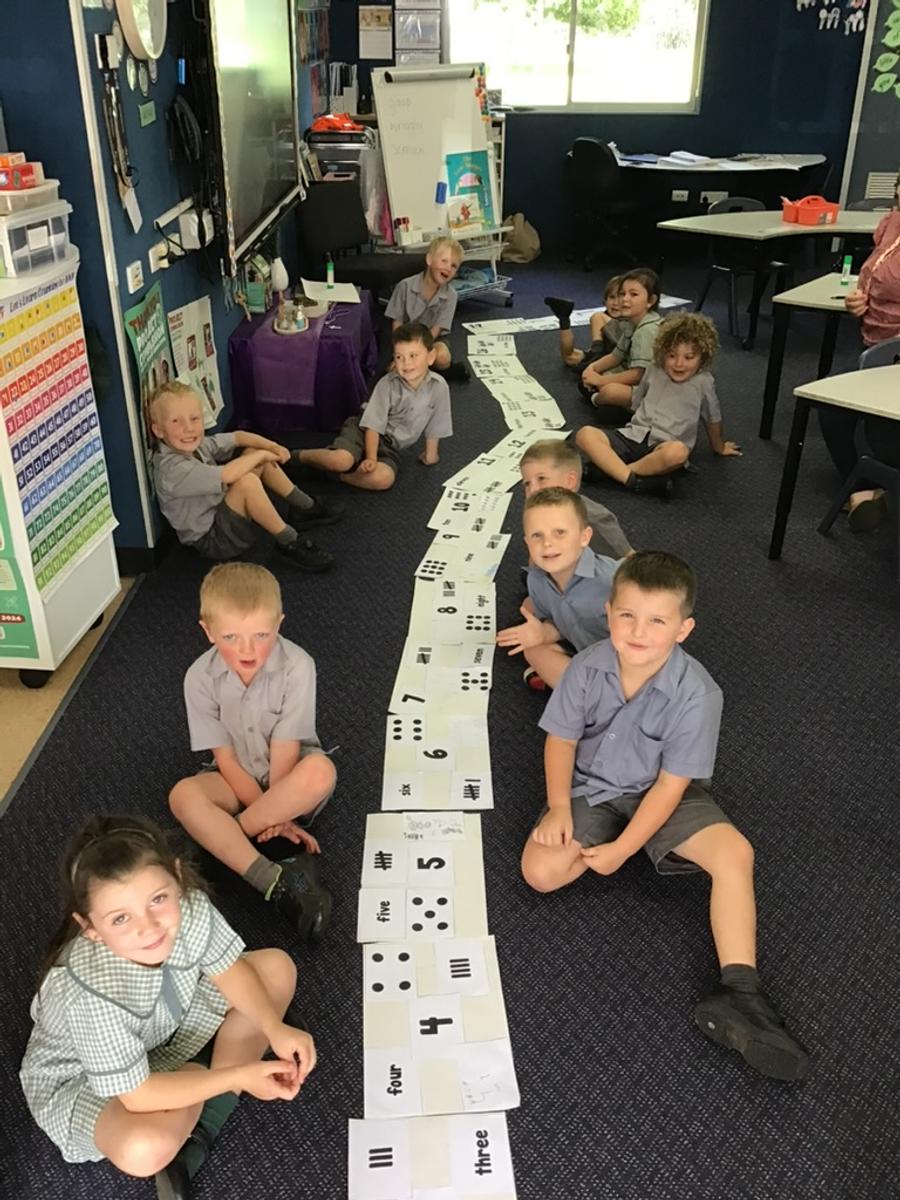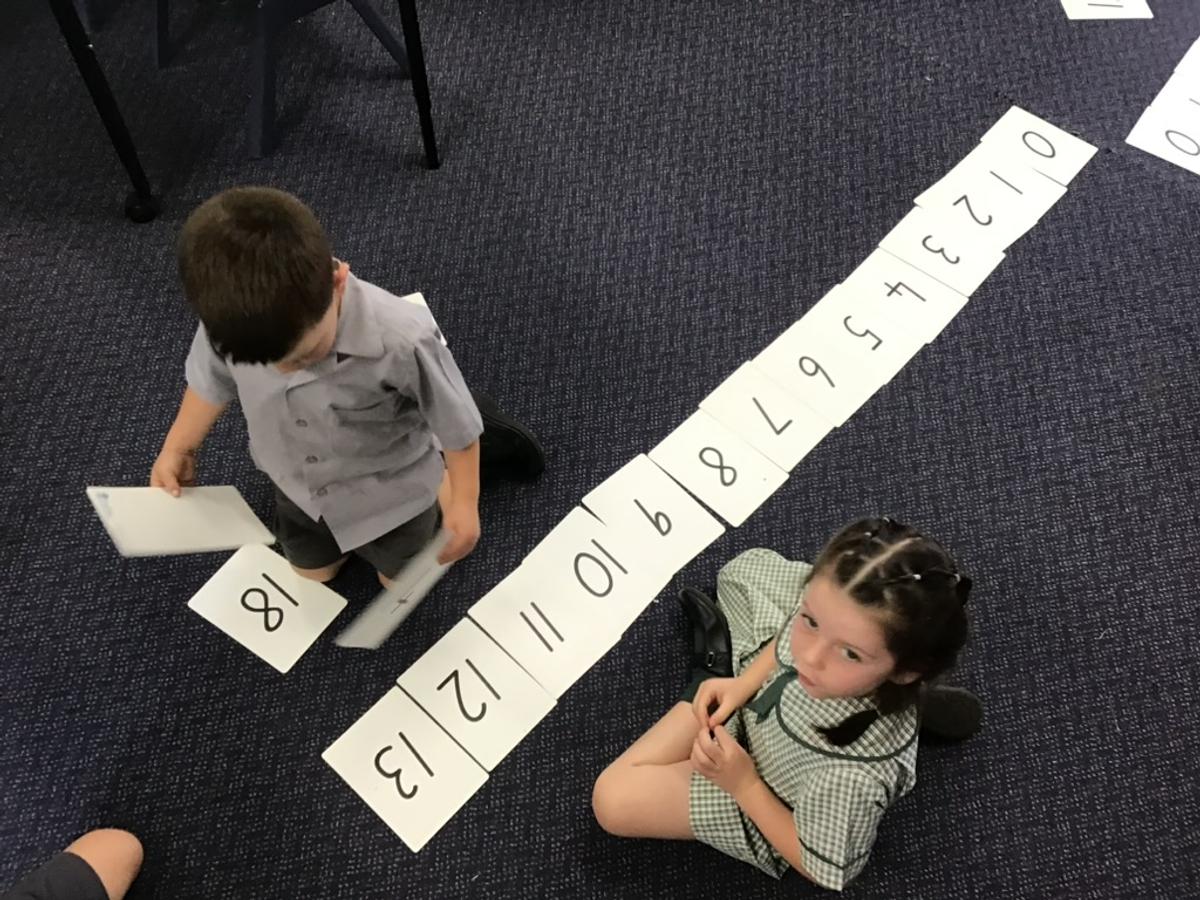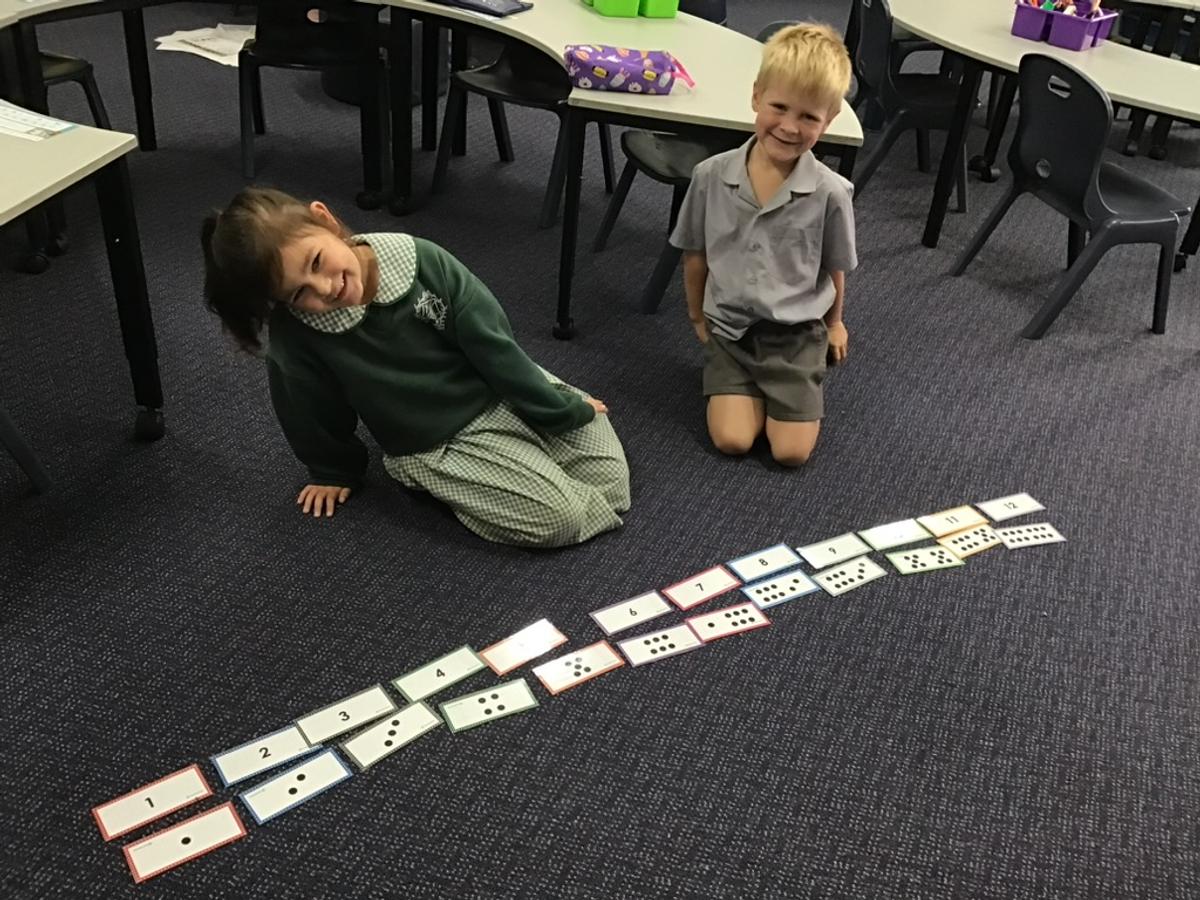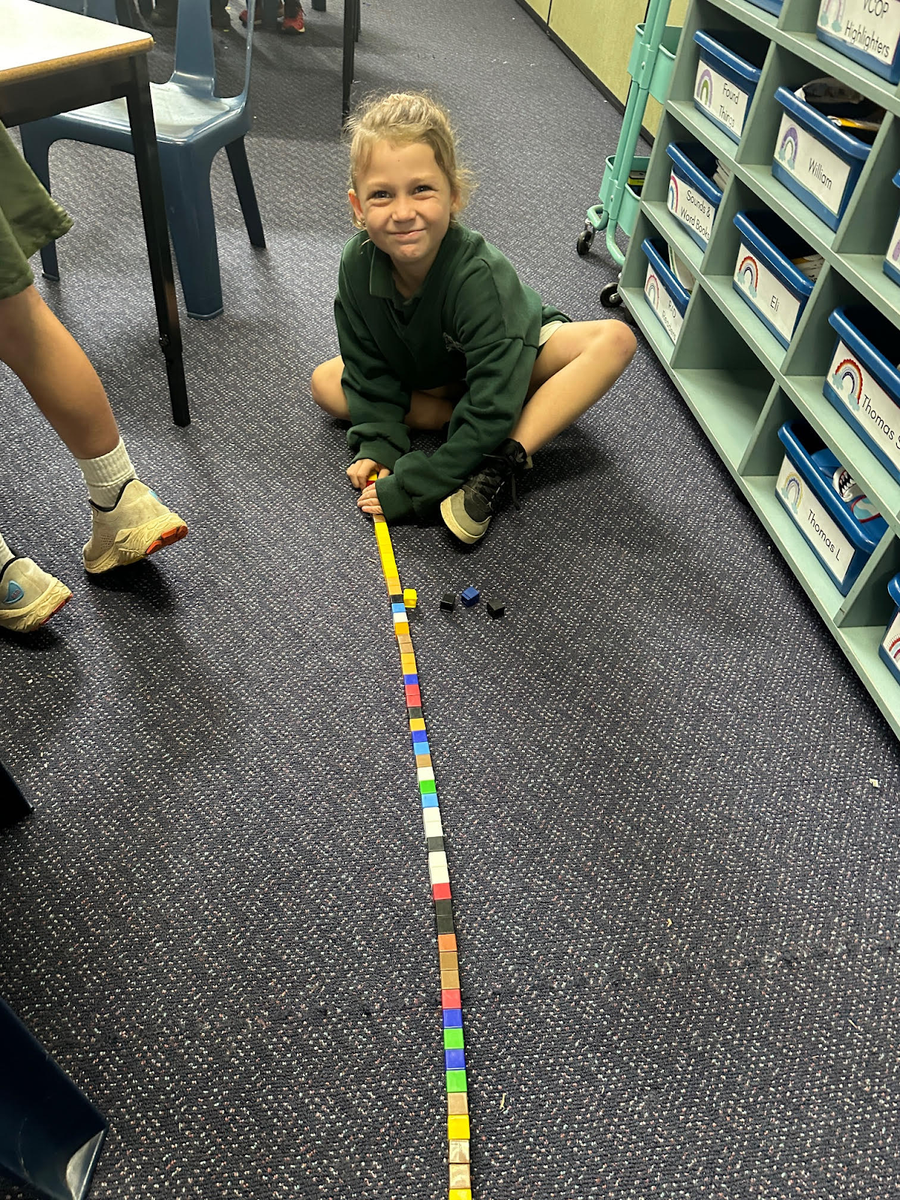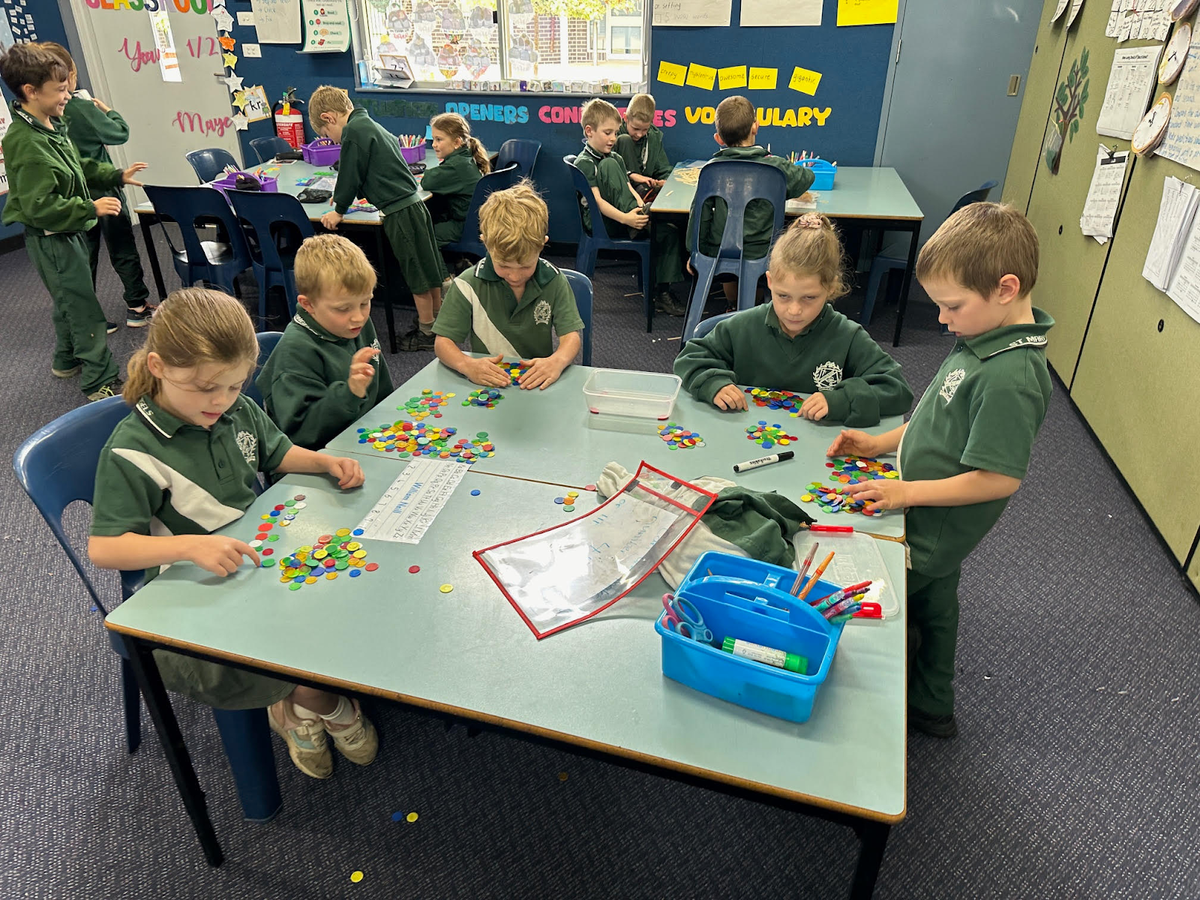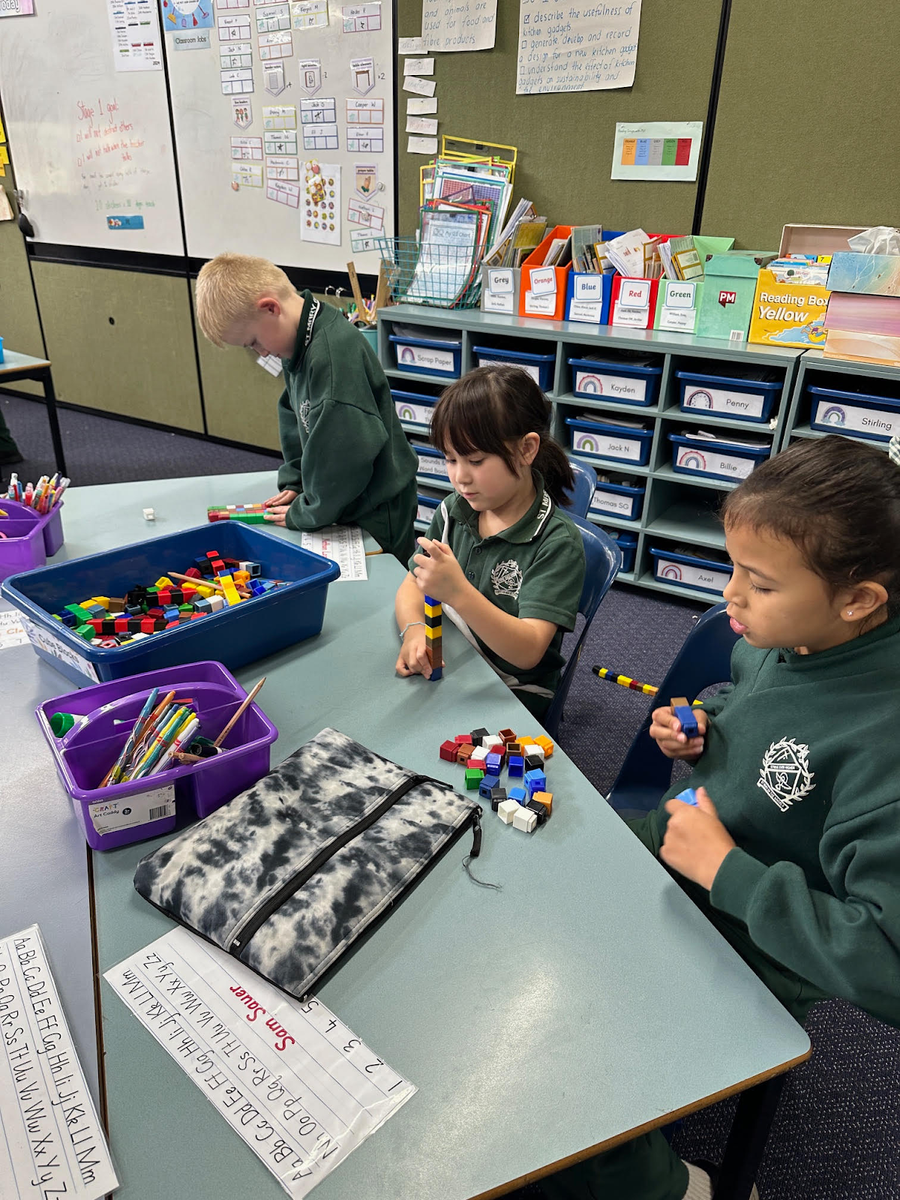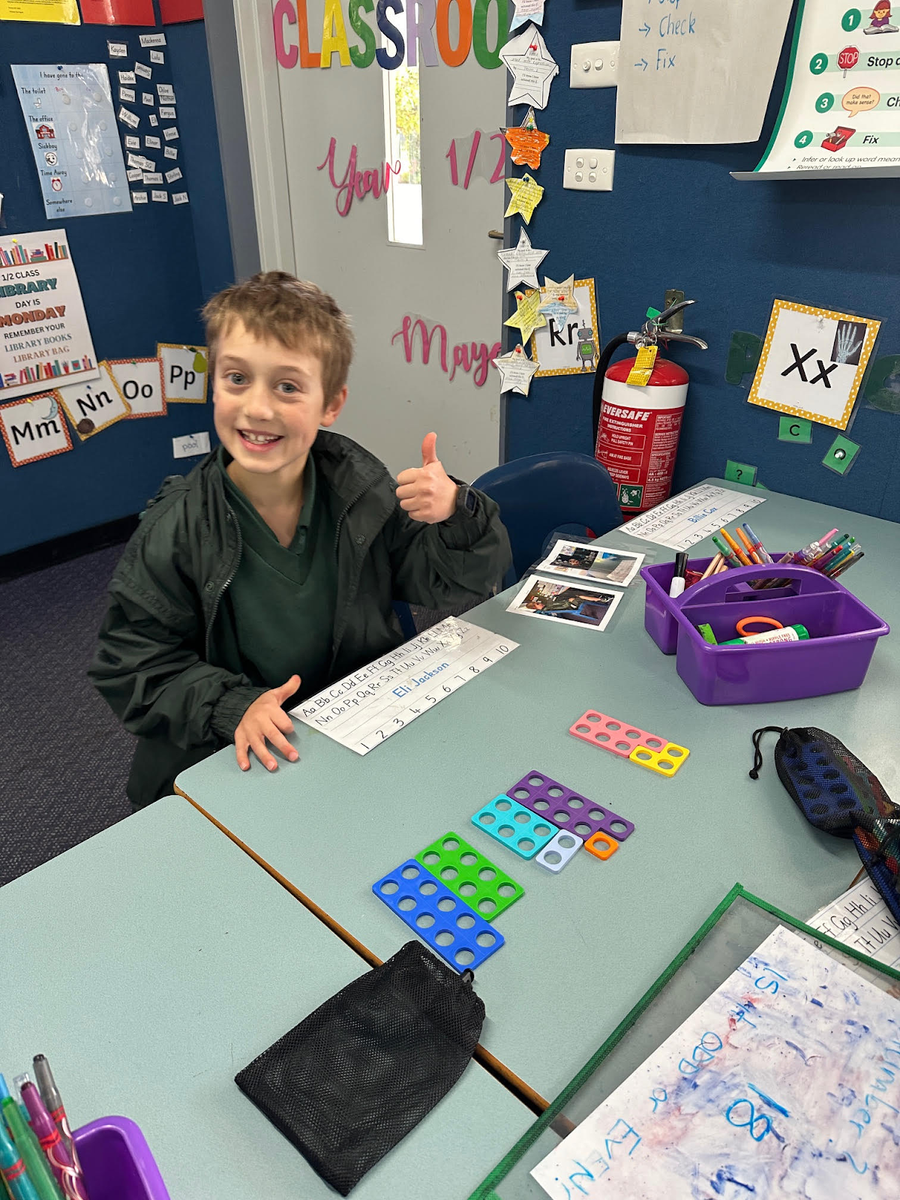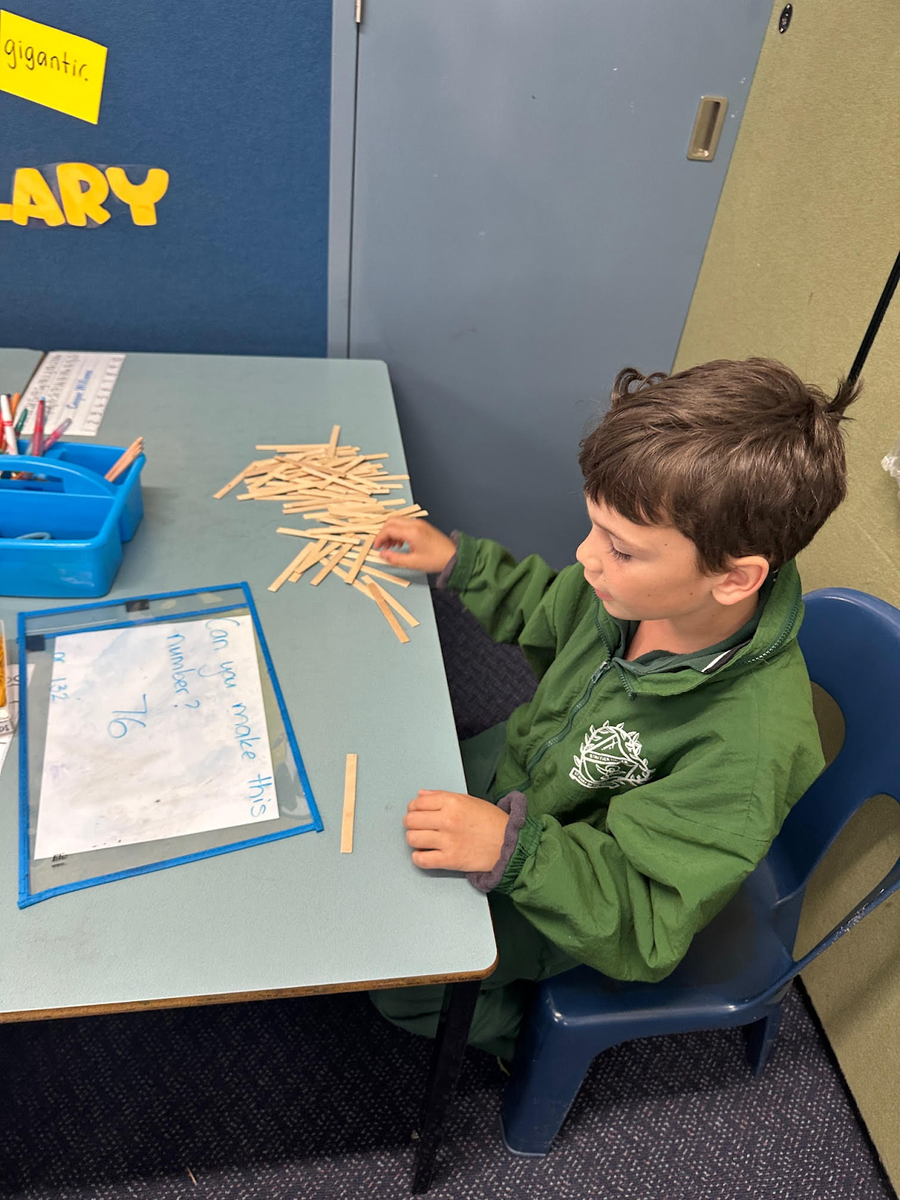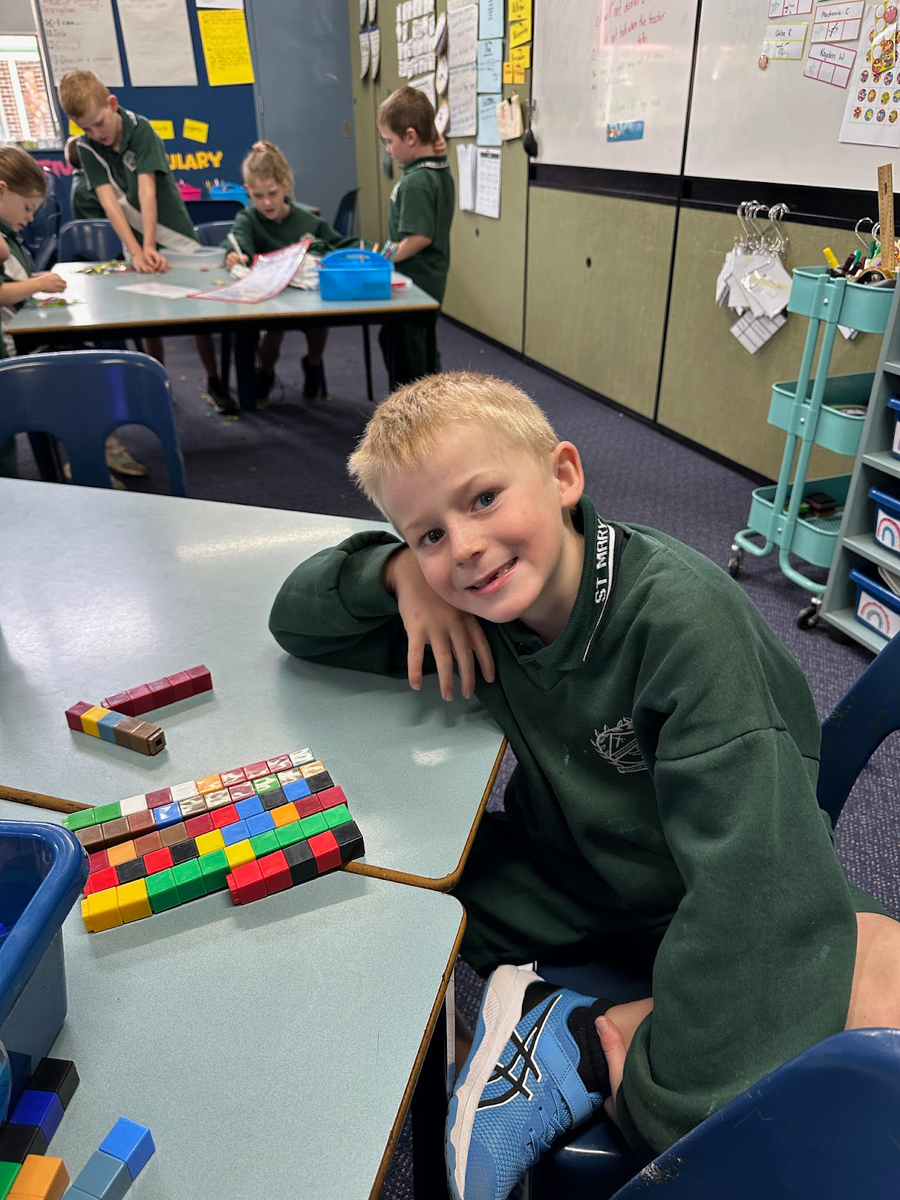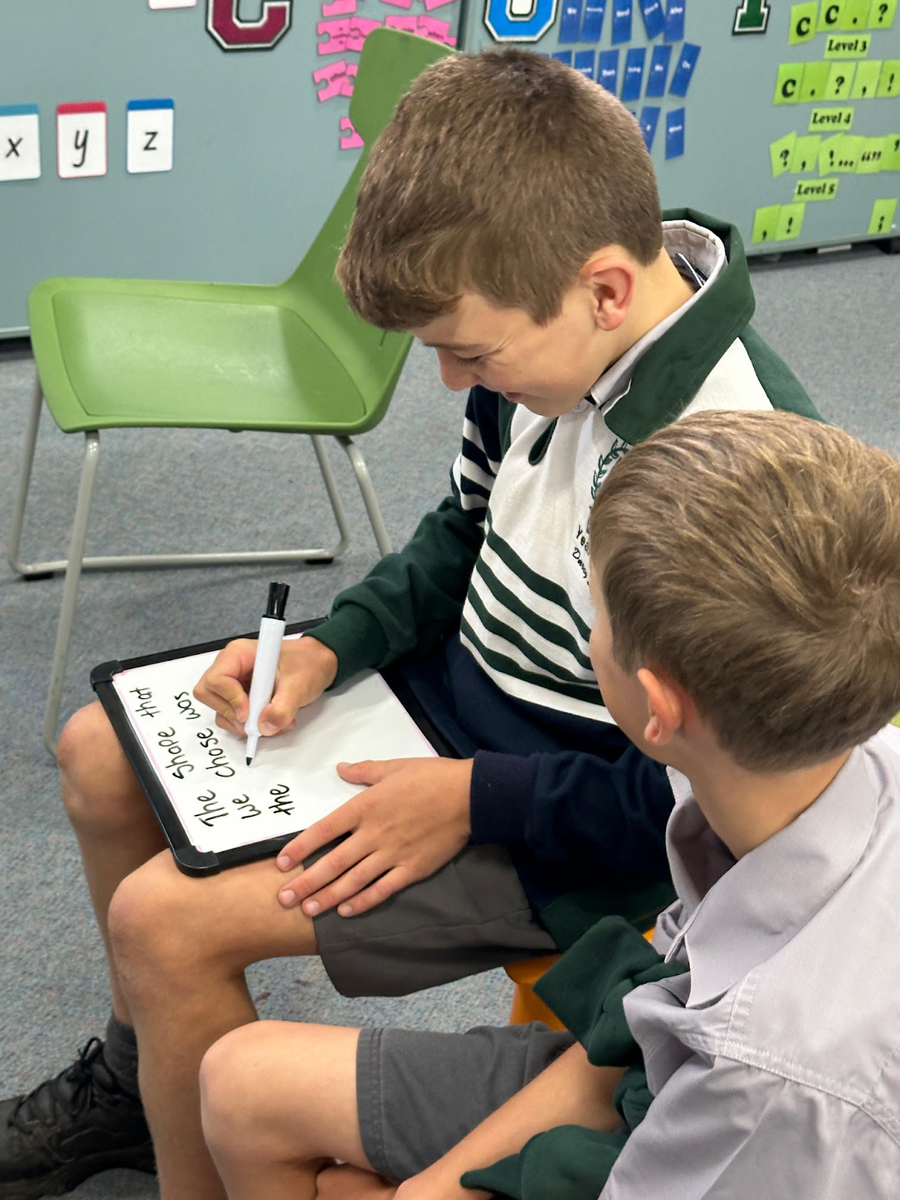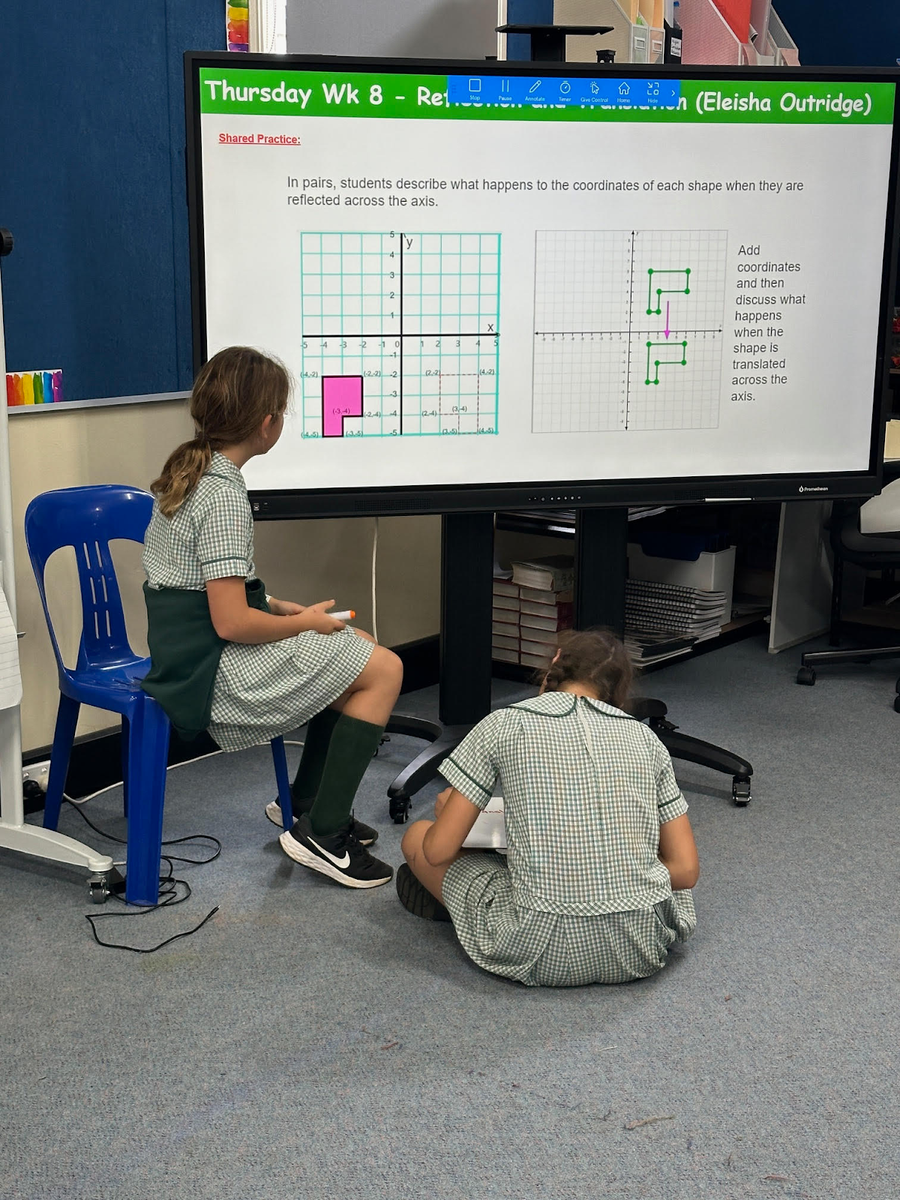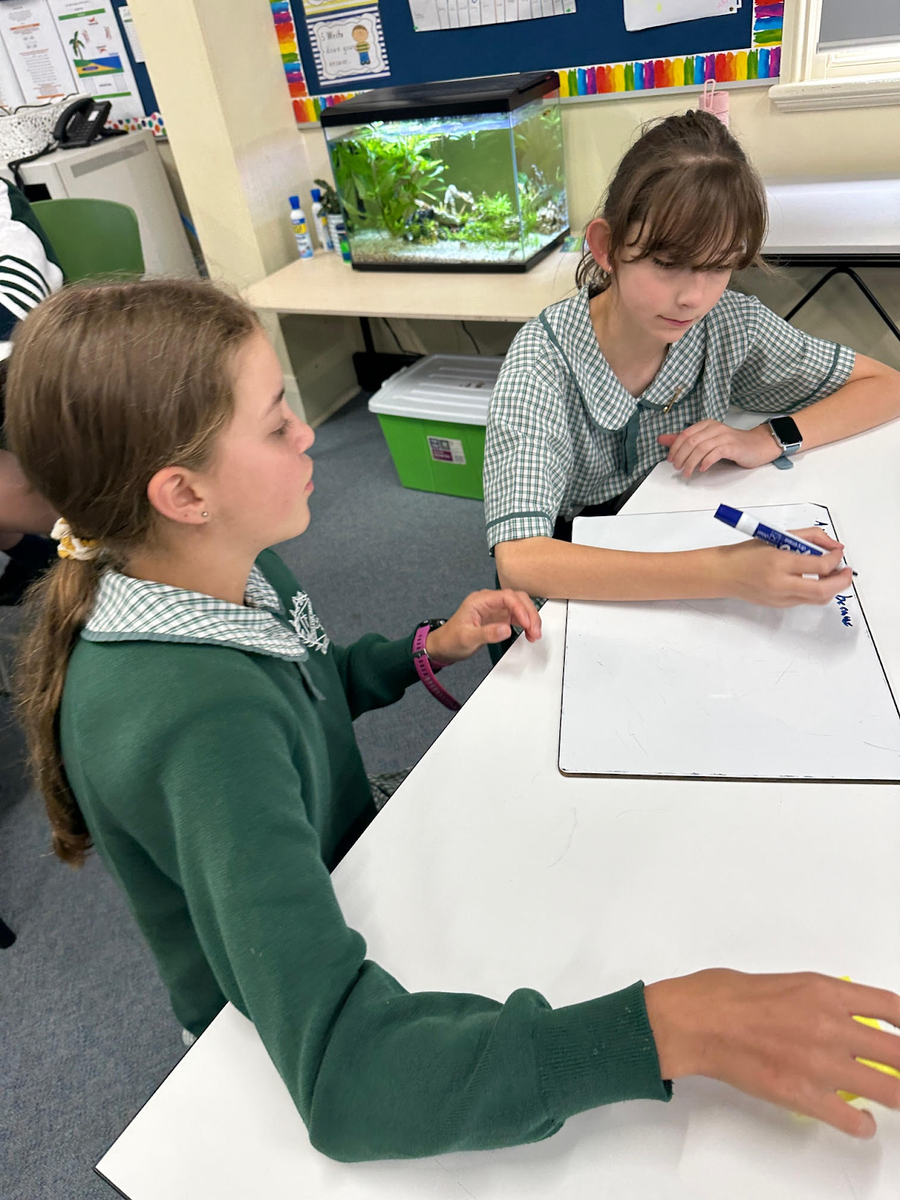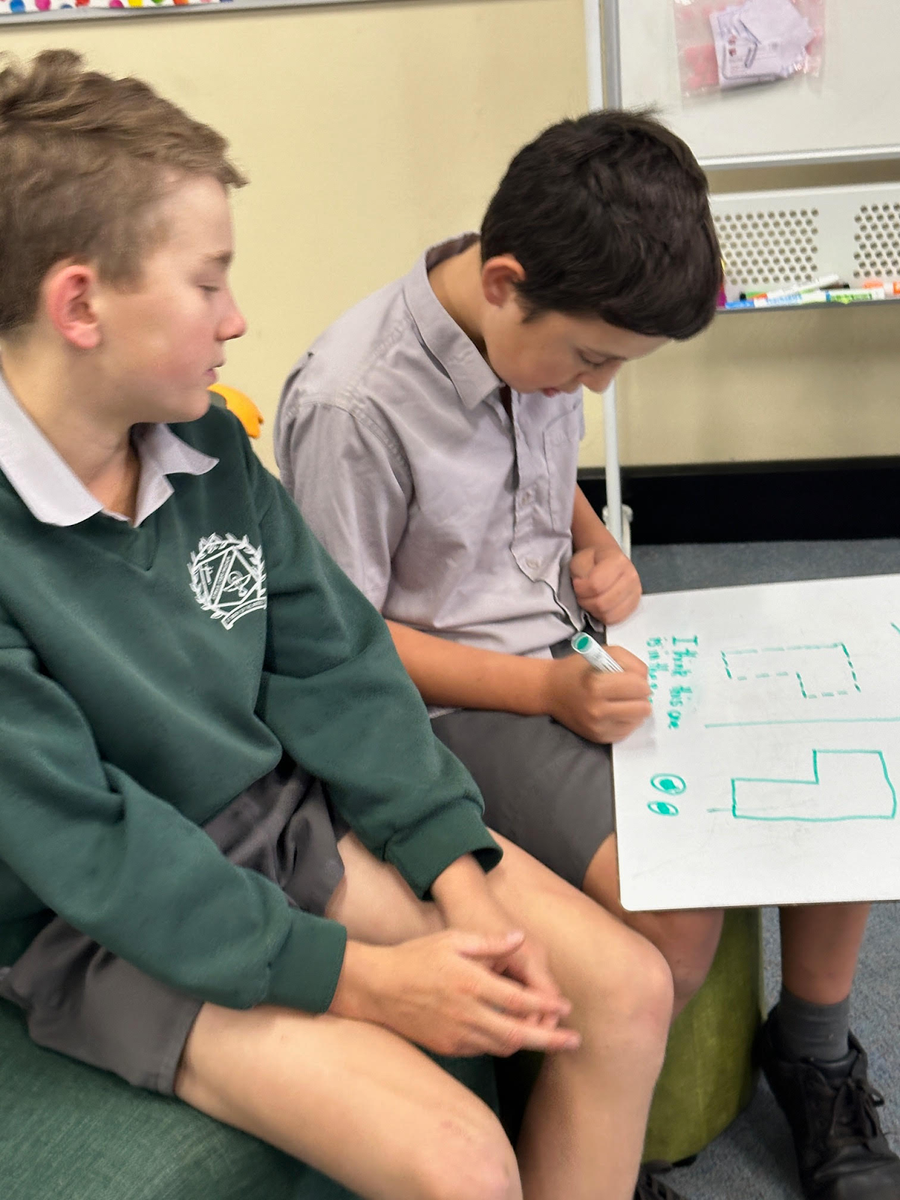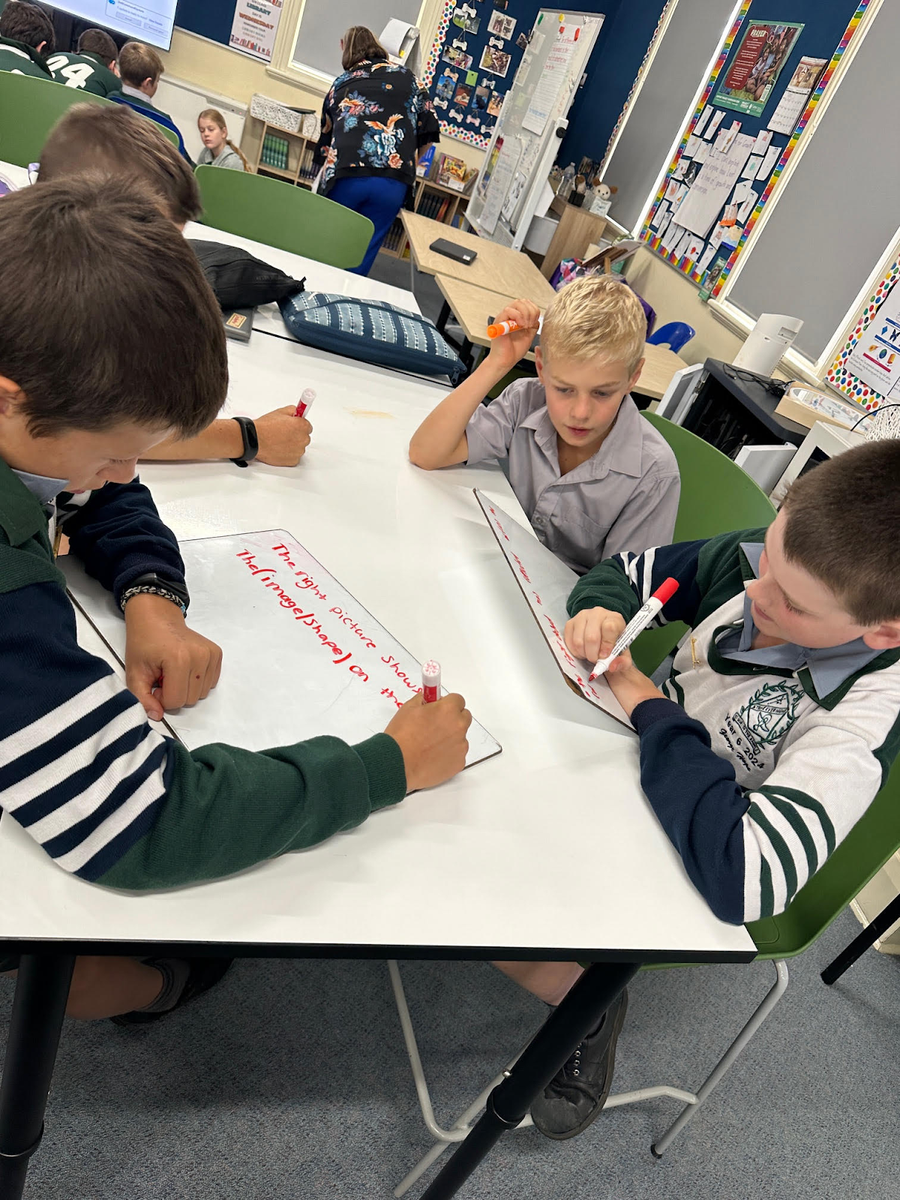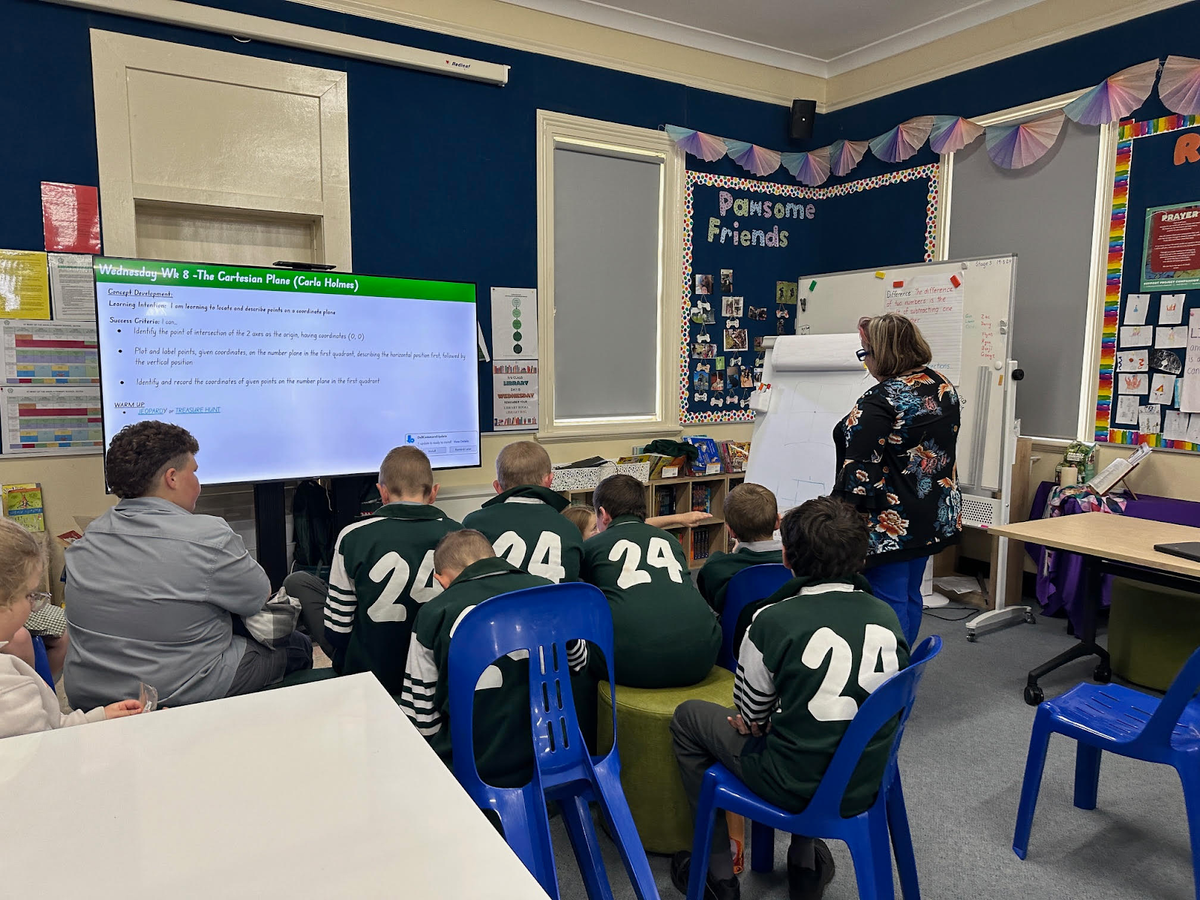The Math's Space
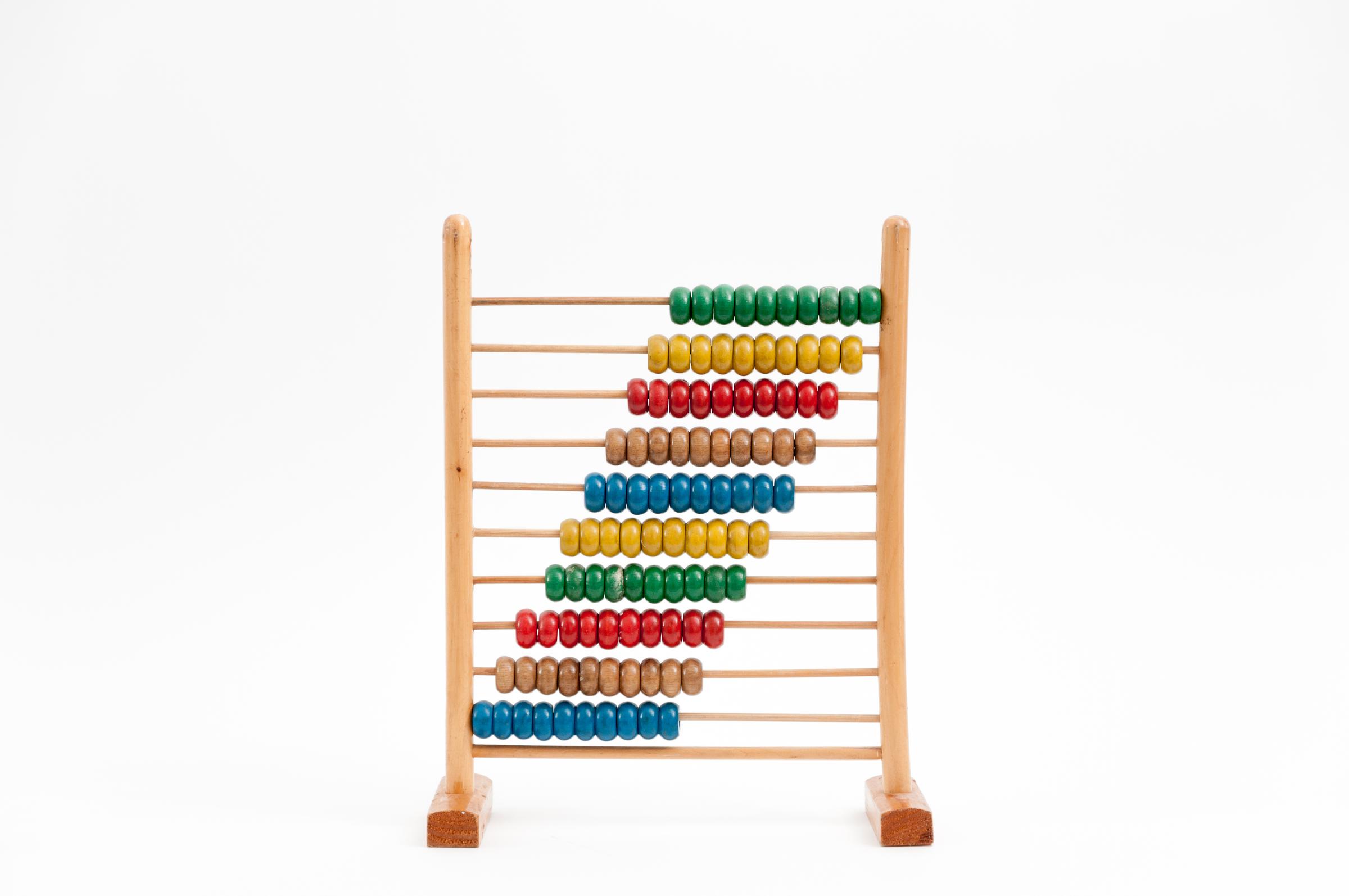
Week 9, Term 1
Our Early Stage One young people have worked hard over the past few weeks in learning, revising and consolidating their knowledge and understanding of whole numbers. We have engaged in many hands-on activities to match numerals with words and pictures. Our young people have begun representing numbers in many ways, including going on a nature walk around our school and collecting materials in our playground to make a numberline. Students have thoroughly enjoyed this unit of work, and look forward to jumping into the concept of ‘Time’ after the Easter weekend.
To support learning at home you may find some of the tips below helpful.
- Go on a number hunt together and discover places where numbers are used such as:
- a clock
- television
- computer keyboard
- calendar
- telephones
- car licence plates
- Counting the beats to your child’s favourite song and getting them to clap their hands or stamp their feet to the beat is a fun way to get your child counting.
Stage 1 is back to focusing on whole numbers and this week have been exploring counting large groups and using 10 as a reference. They have been busy using different ways to group large numbers using MAB blocks, Paddle Pop sticks, Unifix Cubes and 10 frames. Their hands on experiences have led to some fantastic number talk.
To support learning at home the counting tips below may help:
- Count stairs, letter boxes, or objects in two, threes, fives and tens whenever opportunities arise;
- Put out the number of knives and forks needed for dinner and ask your child to count them in sets of two;
- Talk about numbers whenever opportunities arise. Ask questions such as “Which is bigger/smaller/the same/different?”,
- Take note of larger numbers as they occur (e.g. house numbers, page numbers in books).
- Encourage your child to read the numbers and talk about other ways they could have been written.
Stage 2 is spending the remainder of the term learning all about additive relations. To support this learning at home, continual reinforcement of the concept of addition in the real world is extremely beneficial to student learning and understanding. Adding totals at the supermarket, in the shed or collating minutes on a device are all examples of practising the skill.
Stage 3 have had a busy week exploring the world of position. Reading coordinates and understanding a cartesian plane was a little confusing at first but being the incredibly hard working learners they are, students had the confidence and understanding in no time! They are now able to read positive and negative integers and explain the rule around reading a cartesian plane using the X axis before the Y axis to get to the correct coordinates.
